She was a ball of fluff, rolling around in a panic, in the middle of a large intersection in Zagreb. Not knowing where to run away or hide, any direction seemed fine. Puppies don’t understand the language of screeching tires and warning honks.
Somehow, I managed to catch her by surprise and lift her in my arms. She didn’t kick much while I carried her a couple of neighborhoods away. It was an easily accepted warm comfort after some cold bastard kicked her out of his car on an even colder street, on the coldest autumn day 2004.
On January 8th, more than 16 years after she gave her trust in the arms of a stranger on a large Zagreb intersection, I got the sad text message
The dog could not stay nameless, so I Christened that furry bag of potato I found surrendering in the snow – Krumpira (Potato). I thought calling her that on our walks would be amusing as that time the only people screaming “Potatoooo!” in Zagreb parks and streets were merchants with a nomadic truck market stall.
She was the second dog I rescued and gave a silly name before finding their forever home. Long-distance traveling and dog-owning are not very compatible. So Krumpira, or Pira (as her name was later shortened due to practicality, as well as due to probably some embarrassment), found her loving home in the town of Bjelovar. She brought happiness to her adopters and received the same back.
This silly dog that wouldn’t just wave her tail when she saw you, but her entire behind, had everything she needed at her new home. Sadly, she also got some things no dog needs: cancer, an operation, two strokes. Her owners never stopped caring.
On January 8th, more than 16 years after she gave her trust in the arms of a stranger on a large Zagreb intersection, I got the sad text message. Pira has passed away.
Do pets go to paradise?
Saving Pira from the street was an easy decision, a no-brainer. There was a weak and vulnerable being on that crossing, and changing its life path did not require much: just taking care.
I thought there was a valuable lesson there, but one we could adhere easily with pets, and much harder when humans are involved. Not all life crossroads and roundabouts had an easy exit like Pira’s in 2004.
My junction in 2016 was literally – a circus. There were many valid reasons to leave that neverending roundabout I got stuck in. Organizing Festival Novog Cirkusa (the New Circus Festival) for twelve years was taking its toll.
I chose to physically leave, to surgically remove myself from Croatia like one would do with a tumor. The decision was a complex one, and I might never tell the full story behind it.
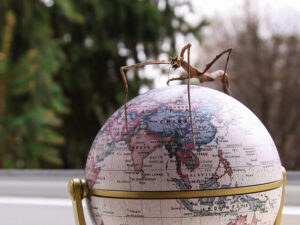
But at that moment of launching the Pipeaway website in 2017, I chose to validate my departure with a funeral for my pet – the Vietnamese walking stick. My first article here described my adventure of bringing a dead insect across borders, in order to say the final goodbye in Vietnam, the country of its ancestors.
There I was, at an overpriced airport coffee shop, sipping morning tea in the company of my father. I was about to smuggle animal remains to a third country and justify one of the biggest decisions of my life with – caring for a pet. A pet that didn’t even have a real name, if you exclude the Borg terminology I invented for these “cloned” animals. Then again, I could never distinguish 1of2 from 2of2.
Those ‘p’s in Pipeaway’s title were almost justified by the world search for ‘paradise’. Finally, I settled with three other p’s: mapping the extraordinary places, people, and passions.
Undressing the superhero costume
“Who knows if I will still be around when you return”, my father said between the coffee sips. Diagnosed with prostate cancer in 2007, he had been fighting it with unstable success ever since.
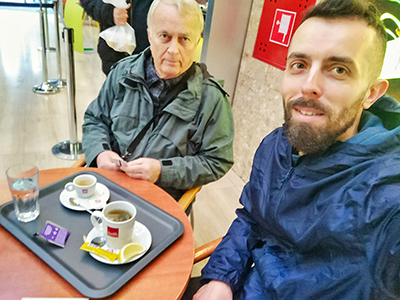
In our complex father-son relationship, this ‘goodbye’ sounded like a manipulative way to bring himself in the center of attention.
I was checked-in and ready to step on this intimidating crossing, leaving my “steady job” and “home country” for a long-term journey. I hoped this could save my life from self-flagellation I readily endured for decades. But it seemed I had to experience a feeling of guilt at that moment too.
Some of the decisions I made earlier were not the healthy choice, I knew that. In my post entitled “We Are Not Cats”, I revealed that one of my deal breakers was when I figured out how easily I ignored the lump in my testicle and decided to focus on work instead of taking care of myself.
At that critical moment, there was a colleague’s leukemia diagnosis that turned my alarm on. I knew I had to do some significant life changes.
In that same article, I used the metaphor of “nine lives of a cat”. It is delusional to think that we would finish every fall by landing on our feet. Indeed, we are not cats. Any jump could be the last one, and that’s why I believe that following your path matters today.
Fear of the finality of our goodbyes was bizarre to address. If I did inherit anything from my father, it would have been that feeling of invincibility. The one that makes you ignore the screaming signs, and comfort yourself in an imagined superhero costume.
I hated it and wanted to undress it.
To skin it off, like a Vietnamese walking stick when shedding.
Take care of yourself, he said
Before continuing to the security check and leaving Zagreb Airport behind my back, I hugged my father and whispered “I love you” in his ear. Words we don’t easily say in our family.
Dad couldn’t squeeze the L-word through his teeth. Instead, he responded: “Take care of yourself!”
It could have sounded cold. But his instinctive response ended up being rational advice. Caring for myself was the fuel of my actions in a very vulnerable part of my life. All I tried to do with turning a new page in 2017 was exactly that: following the advice I didn’t hear.
Dad couldn’t squeeze the L-word through his teeth. Instead, he responded: “Take care of yourself!”
By the way, I even gave the title to this article BEFORE writing it. I thought the words “Before Goodbyes: Take Care of Yourselves” could potentially encompass what I wanted to communicate in this post about farewells. It is only now that I have realized those were the same last words my father said before my departure.
Malaysia, Vietnam, Japan, Cambodia, Indonesia, Singapore… Countries were rolling under my feet. Stamps and visas fought for space in my passport. I was reaffirming my position as an unofficial apatrid, a permanent stranger.
Before I left, I taught my father how to use Skype on a laptop he didn’t use for anything else. We might have been on different sides of the globe, but at that moment it felt as if we were drawing closer. We talked more. Our complex relationship seemed to be improving.
Five months later I returned from Southeast Asia. And yes, my father was “still around”.
The boy who cried wolf
When I received the news about Pira, that ball of fluff, passing away on January 8th, I answered with a sad face emoji. There were no smart words to say. I felt like an emotion-deprived zombie.
Frankly, at the time I was living in twilight. I would spend my days trying to get some sleep in my flat. By night, I would stay awake in my family home.
My dad was lying in a borrowed hospital-style bed, unable to move, use the bathroom, or even eat and drink. How did we come to that?
His condition deteriorated just after New Year’s Day. The ambulance took him away, but in the middle of the medical examination, he gave up. He signed the hospital discharge papers voluntarily, took a taxi, and got home in the middle of the night. That was father at his most typical self.
The next day, his condition worsened, and he agreed to enter the ambulance van again. The same afternoon, he called me saying he didn’t think he could stand “that”, and if I could only come over to the hospital, to move his leg. It was his first call in years, and it sounded dramatic. Again, he discharged himself, ordered a taxi, and returned home.
My father’s dance between “I need help” and “I want to go home” started resembling Aesop’s boy who cried wolf. Would we even call the ambulance next time?
Reluctance to accept medical aid at this stage seemed suicidal. Our primary care doctor even explained the aspects of deprivation of legal capacity, but that required time. And time was an enemy of my father’s condition.
Finally, he accepted to return to the hospital. The doctors did exams and concluded that curative medicine can no longer help. They discharged him and recommended palliative care at home.
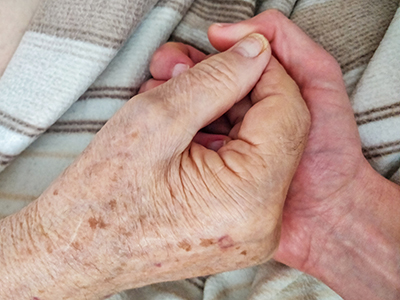
Living room, no more
Just a week ago, this man was driving his car. Now, he was a patient who needed constant assistance.
His New Year play with the wolf was nothing new. In the thirteen years of his fight with cancer, there were more than several occasions when his innate stubbornness triumphed over the care for his wellbeing.
Often he would be his own doctor, deciding by himself when the therapies or intake of expensive medicines he was lucky to get prescription for should stop.
His shame of carrying a temporary urine collection bag around his leg resulted in total loss of function in one kidney. Eventually, he had to live permanently with a nephrostomy tube. There were lessons he could learn from, but he was not the learning type.
Between his regular diaper changes and before delusions born of the illness and morphine patches took over, the new normal of 2021, he asked me a hard question.
“If I were normal, I wouldn’t have ended like this, right?”
The same person who told me “Take care of yourself” before I flew away four years ago, did not follow the basic recipe for the unspoken L-word.
He stopped his chemo in October and told his doctor he would return in December. But metastatic cancer had other plans.
There he was now, lying immobile on a hospital bed in the middle of the living room I grew up in.
His heavy eyes struggling to make sense of the deceased people passing by, picking fruit growing just above his bed, drinking invisible water from an invisible glass… And some man in white standing in front of him.
My balancing on a thin wire of sleepless nights was nothing close to his delirium between the worlds. I could just hold his hand, still strong enough to return a squeeze, while his body was switching off slowly. Very slowly. For days.
A week after his return from the hospital, and three nights after I got the message that the ball of fluff stopped rolling, I’ve heard my father’s last breath. January 11th, 2021, 2:10 am.
The comfort of ignorance
His departure felt peaceful. In the middle of the night, the room got silent and was suddenly – full of absence. There was no more gasping for air and moaning in pain. He was calm, just a vessel of a being that once was.
Father’s departure didn’t break me. His meeting with his brother three days before did. It’s those human connections that break us and hurt. Things we said and things we didn’t. The encounters we had and those we missed. The falling apart of relationships we could actually influence hurts much more than the unavoidable outcome of our lives – our bodies becoming lifeless.
Pira’s grieving owner asked if there was anything he could do to help with my loss. Knowing he himself is fighting coughs he delays to check, I knew there was something to lower the future pain. “Take good care of yourself”, I quoted my father.
Going through old papers at home, I found my blood test results from a year ago. My cholesterol was too high. And I didn’t do anything about it ever since. The same person who twisted his life upside down four years ago, after ignoring the screaming message in the testicle, was doing it again.
I do wonder what that is about us, that we do not look after ourselves, and find comfort in ignorance.
If I look around, it’s everywhere. Ignorance is a political system we live in. We are not used to responsibility towards ourselves and the people around us. In Croatia, we make it up as we go. We improvise with catastrophes. Whether they are called fires, floods, or earthquakes, we are never prepared. We never care enough when we should. And that’s typically before the catastrophe happens.
Why are we so careless?
A friend of mine passed away before even finding out what's wrong with him. Read the story of Fathin Naufal! Another artist's departure made me reflect on choices we make with our time here - read about Angela Laurier's inspiring thoughts on performing!
The meaning of taking care of yourselves
On average, every month between 1 and 10 thousand people search the phrase “take care of yourself meaning” on Google. We literally do not know what is the signification of the concept of looking after ourselves.
Luckily, we live in centuries and countries when and where life expectancy has been largely extended. We live 20 years longer than our ancestors did a century ago. Our dogs live longer.
Of course, modern medicine and health care cannot solve all our problems, but not taking care of ourselves on time sometimes equals not caring at all.
If we approach life issues like children in a hide-and-seek game, the hidden problems will not disappear just because we counted to 100
Large intersections of our lives are especially dangerous places. Instead of waiting for a green light to cross over, we rush through the middle, trusting that the invisible superhero cape will hold.
If we approach life issues like children in a hide-and-seek game, the hidden problems will not disappear just because we counted to 100. Once we open our eyes, they will still be around, concealed somewhere, but ready to win the game when we don’t pay attention.
In his younger days, my father fantasized about seeing the Great Pyramid of Giza. The same as with his health, he delayed doing something about it. He placed more trust in the possibility of winning a lottery than in his own actions as an engine of change.
He never made it to Egypt.
The monumental tombs remained a private magical springboard to the heavens for pharaohs. Those who had the privilege to take good care of themselves.
Please look after yourself! Take care and be well!
Do you want to save this article for later?
Pin it!
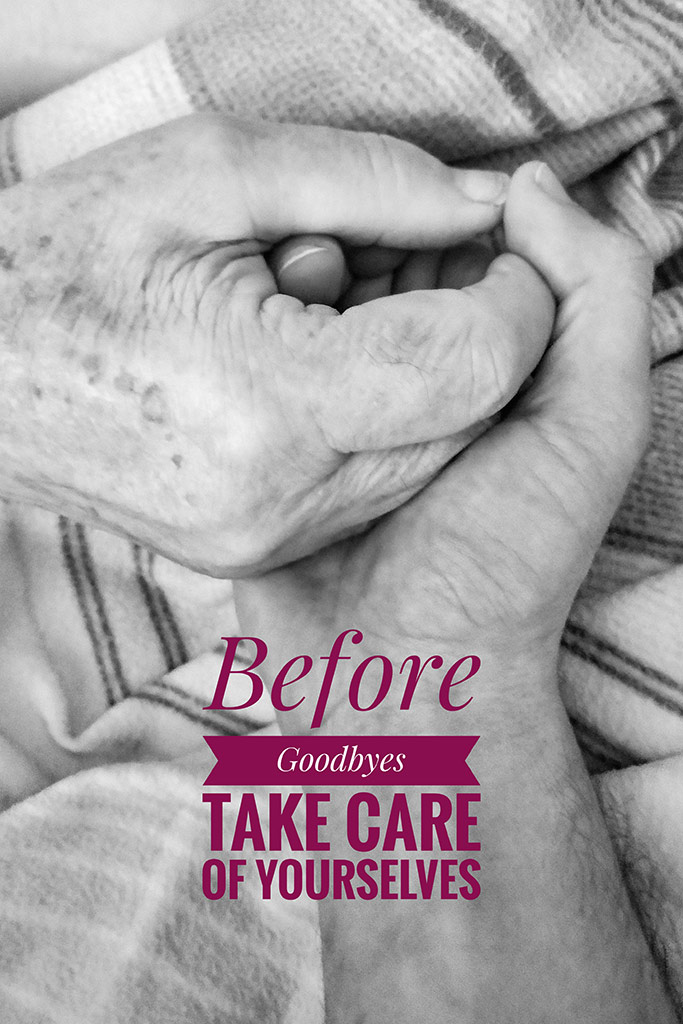
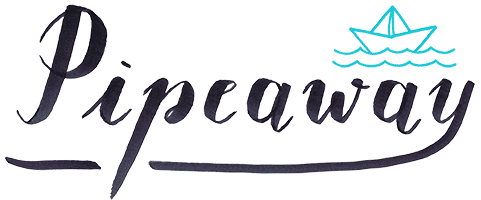
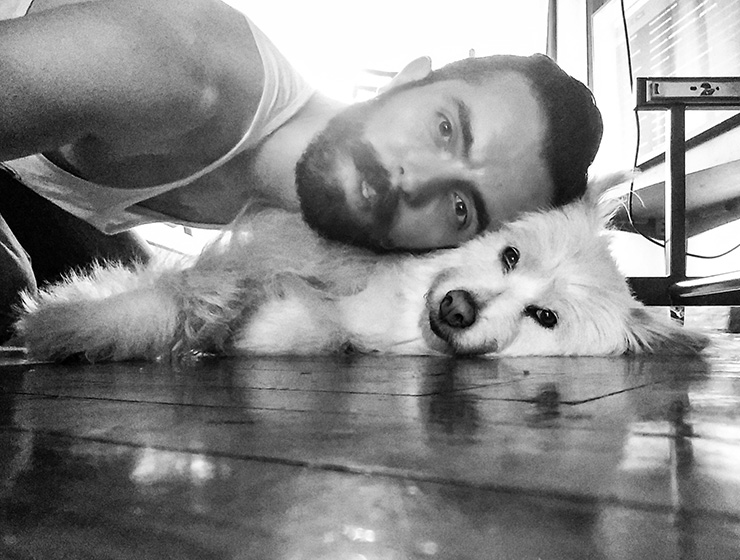

Thank you for sharing!
Thanks for reading it!